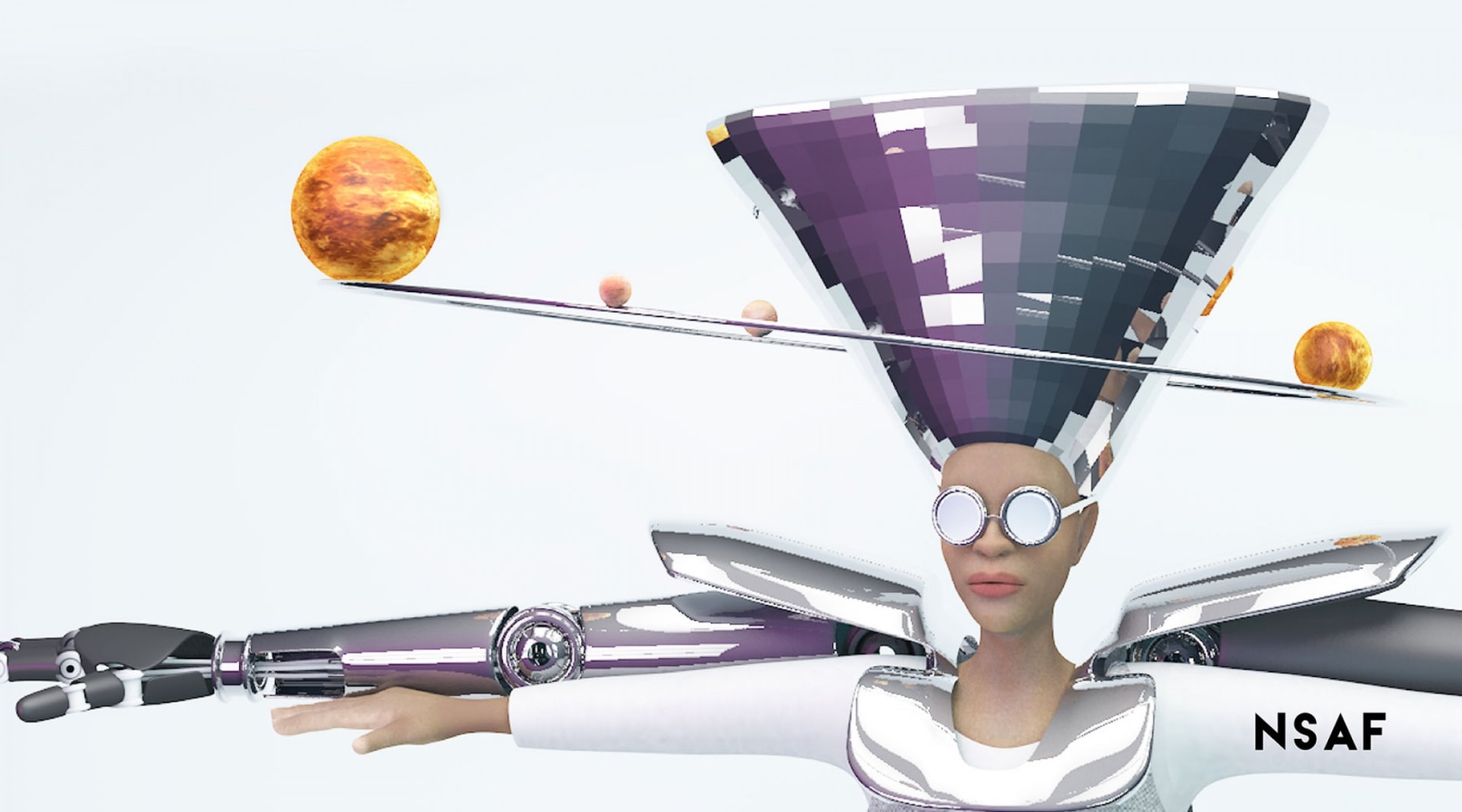Entering into the space, visitors encountered a visor by AB Screenwear that reflects unfriendly faces back on the viewer; a scarf by privacy artist Adam Harvey with a pattern designed to confuse face-recognition algorithms used in surveillance technology; and a pair of earrings by artist Michelle Cortese enabled with audio and video recording technology.
Ashley Baccus-Clark, a speculative neuroscientist and member of the Hyphen-Labs collective, said that the earrings had been created as a response to police violence against unarmed black men, and the dangers posed to those who document them with smartphone cameras. “We wanted to provide a tool that had the same functionality but that was a little bit more discreet,” she said.
Baccus-Clark said most brands were failing to consider the needs of women of color, and that while some of the Hyphen-Labs products on display at SXSW could be brought to market, the installation on the whole was meant to create a conversation. “It’s a provocation—we’re here, we’re creating this and why aren’t you thinking through these things? It’s just starting to shift now,” said Baccus-Clark. “It’s something that really needs to be talked about.”
The second part of the installation was a VR experience that immersed viewers in Brooks’ Salon, a cosmetology parlor of the far future. Seated in a salon chair, viewers could look in the mirror to see a reflection of the central character, a black woman being fitted for a set of “Octavia Electrodes” that expand the capabilities of the brain.
Once the electrodes are in place, the scene shifts to an otherworldly setting as viewers fly over a vast temple-like terrain and observe a ceremony led by someone perhaps best described as an intergalactic priestess. The experience had a visionary, futurist feel to it—at a festival where, this year at least, such moments were few and far between.
“This is just chapter one, so we want to make episodic content, build out the story world more and add more characters,” Baccus-Clark said. “We want to tell you a story from the point of view of a black woman. That doesn’t necessarily need to be empathized with, but it is from a particular perspective, so you’re getting an insider view into that world.”
The diversity conversation continued elsewhere at SXSW. Across the street at the FastCo Grill, a conversation and networking space hosted by Fast Company magazine, Moj Mahdara of Beautycon Media and Richelieu Dennis of Sundial Brands talked about how their work connected with the younger generation of women of color who weren’t getting their due from mainstream brands and retailers.
Check back for additional coverage of SXSW and our roundup of key trends at the festival, coming next week.



